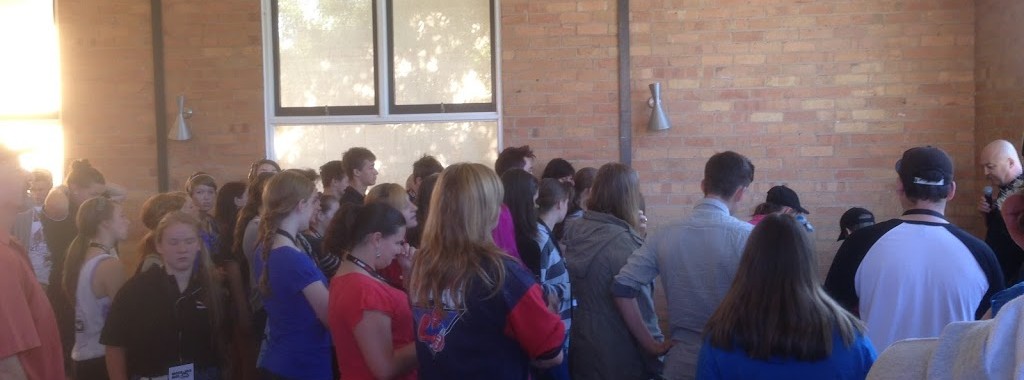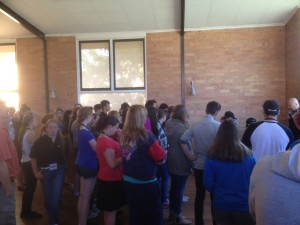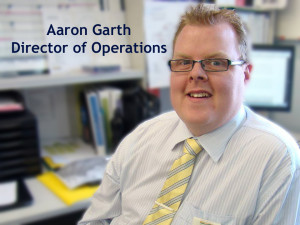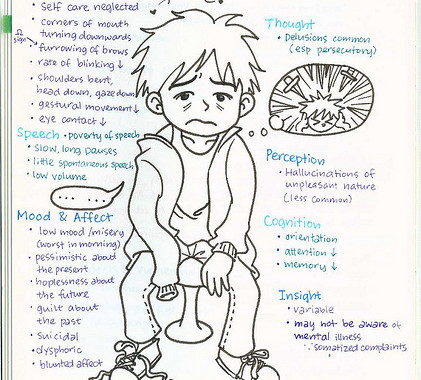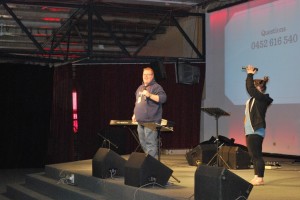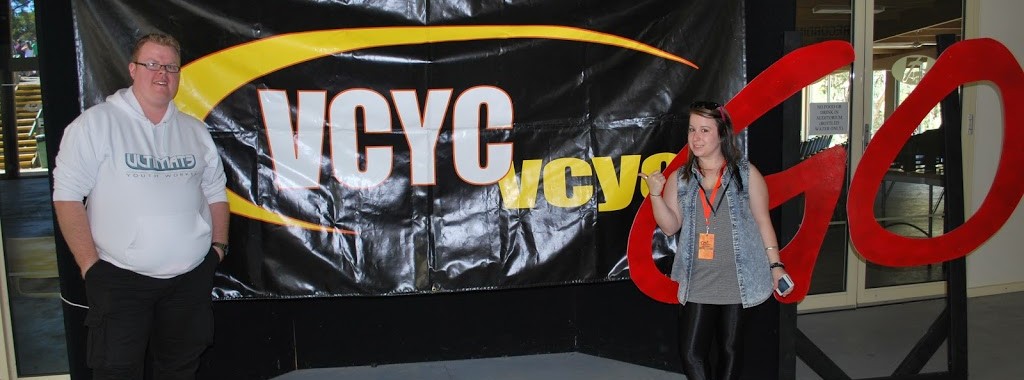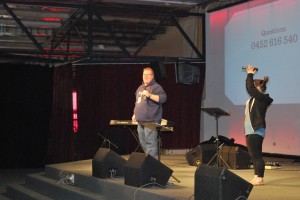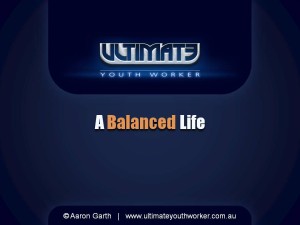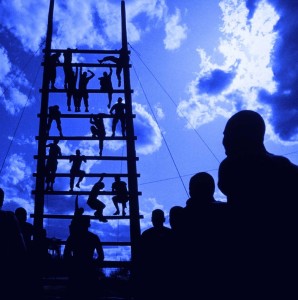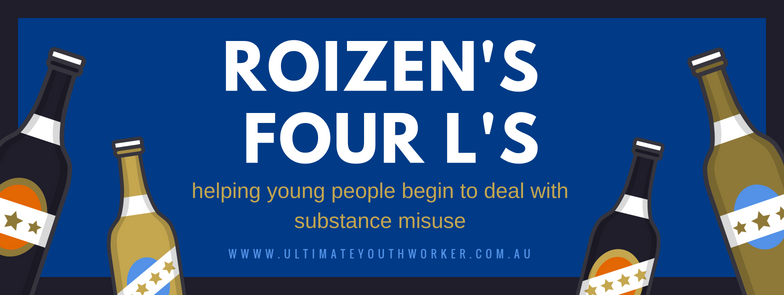Mental State Exam for youth workers: Appearance.
Get out of youth work: how to know when its time to move on.
-
If you stop seeing your clients as human its time to go. Wether it is a particular case or the orginisation or the entire career path will be determined by how jaded you have become. You will only do damage to your clients and in turn to yourself. It is a self fullfilling prophecy and it only ends bad.
-
If your orginisation will not support or is unable to support you, jump ship. Better to take your chances finding another job than being fried. Your health and wellbeing is more important than making quota or your CEO feel better. Needless to say, an orginisation that does not support its staff is not really supporting its young clients either.
-
Having significant people outside of your career is crucial to providing clear insight into you and your level of strain. I mentioned my wife, who was an amazing support during this time, however I had friends, family and mentors who also provided much needed respite and assurance.
-
It can only end bad if you keep gutting it out. The more you invest the more likely you will fall. If you are not getting good supervision and support gutting it out is like playing russian roulette. The question is not if you will get shot , but when.
one in four young people will have a diagnosed mental illness: do you know the signs?
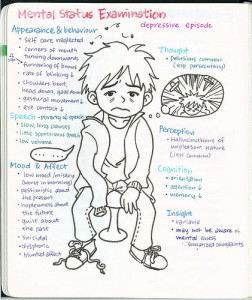 The Mental State Exam covers eight areas of the person for us to keep an eye on:
The Mental State Exam covers eight areas of the person for us to keep an eye on:
In the meantime here is a short video to whet your whistle.
5 ways to develop youth work practice post-conference.
-
Reflective practice really does work. While you are at the conference you probably wrote copious notes. Set aside time to read them again and journal about your experiences. How might what you have just learnt fit into your current practice? Use your colleagues to bounce ideas off or use a group supervision session to flesh out your thoughts.
-
Read a book! or two, or more. Read about what you have learnt. Don’t take a hour seminar at face value. Don’t take the week or couple of days or webinar for granted… question everything! Read wide and read deep. See if what you have been told stacks up.
-
Get some accountability. A conference high is an amazing thing. You feel bullet proof on top of the mountain. on the trip back down it is easy to forget what you learnt or why you went in the first place. Having a mentor or someone who will hold you accountable to your learnings from the conference will help you develop for the long run.
-
Take time for yourself. A conference takes it out of you. You’re learning, networking and generally trying to keep up. It often runs across multiple days and you are on the go the whole time. Within the following month take some time to just recharge… the sooner the better. Your self care is really important to developing your practice post-conference
-
Sow into others. Some say the best way to learn is to teach. Take the time to pass on some of the knowledge you have picked up on the way. Pass it on at team meetings, to younger staff members to other service providers who weren’t at the conference. Passing on your new knowledge to others will help you wrestle with how to impliment it and will develop a wide net of practice.
If you need support to put your post-conference learnings in order, speak to us about how we can provide supervision and coaching to help you reflect on your new insights.
Stay up to date with all our goings on by signing up to our newsletter.
Post conference slump
If you follow us on facebook or twitter you will know that some of the Ultimate Youth Worker team were at the Victorian Christian Youth Convention (VCYC) providing support and MC duties. The convention was amazing! over 300 young people and their youth leaders across the weekend all there to grow. There was amazing bands, great speakers and phenomenal fellowship. As the MC’s we had the privilage of leading the convention seeing and hearing all the highs that came throughout the weekend. But as with most highs eventually there comes a low.
 |
| Aaron Garth and Cat Argiriou at VCYC 2013 |
If you haven’t yet, sign up for our newsletter to find out all the goings on at Ultimate Youth Worker. (Sign up here)
You can also leave us a comment below or post a comment on facebook and twitter.
I’m a Slut…No one will love me!!!
Two things come to mind:
Become more than you are right now: A youth work specialist
If you haven’t yet, sign up for our newsletter to find out all the goings on at Ultimate Youth Worker. (Sign up here)
You can also leave us a comment below or post a comment on facebook and twitter.
Virtue Ethics and Practical Wisdom.
This week we are learning through video. This is a short clip of Barry Schwartz speaking on Virtue etthics and practical wisdom. Enjoy and discuss.
If you haven’t yet, sign up for our newsletter to find out all the goings on at Ultimate Youth Worker. (Sign up here)
You can also leave us a comment below or post a comment on facebook and twitter.
Roizen’s 4L’s helping young people begin to deal with substance misuse
Roizen’s 4L’s
We all know that substance abuse is on the rise in adolescents the world over. It is often in the top five biggest issues for young people in surveys and is on the agenda in almost every youth service I know. Many of the young people I have worked with have either misused substances themselves or know someone who does. Drugs and alcohol are one of the problems that young people face which youth workers need to have a good understanding about. In coming posts we will speak more about the AOD sector however in this post we will give you a tool to use when one of your young people has more than a passing relationship with substances.
Whether you are a believer in zero tolerance or a staunch observer of harm minimisation, working with young people who use drugs and alcohol excessively can be difficult. We can have many ideas on what to talk to them about or why they are using but if they do not see their use as problematic it is unlikely that they will do anything about it. What we need is a system to help young people see their behaviour as problematic in a way that will not strain our relationship too much.
 Enter Ron Roizen
Enter Ron Roizen
Ron Roizen, an American sociologist, created a useful shorthand system for the harms which may be experienced through a use of drugs. Support workers have been using this system for decades to help young people move from pre-contemplation to contemplation. The system is known as Roizens four L’s. Each word begins with the letter L – ‘Lover’, ‘Liver’, ‘Lifestyle’ and ‘Law’ – stands for a category of harm.
 Lover
Lover
Lover helps us to discuss the problems which have arisen with relationships in a young persons life. These problems may show their head with family and/or friends, boyfriends, girlfriends or even their significant goat. Lover reminds us to probe how substance use has changed their relationships with those who are significant in their lives.
 Liver
Liver
Liver implies all the physical and psychological health problems caused by drug use, such as cirrhosis, depression, anxiety and psychosis. When speaking to young people we use the word LIVER to remind ourselves to use probing questions into the health implications of their substance use.
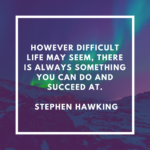 Lifestyle
Lifestyle
Refers to problems of employment, problems with study, financial problems and other problems which have taken place due to their substance use and its change to their social behaviour. Did they formerly play sport on the weekend which now is left behind for a score? Perhaps it is that they are now night owls and miss work for sleep. Use the word LIFESTYLE to remind yourself to ask questions about how their substance use has changed their lifestyle.
 Law
Law
LAW refers to all the legal problems which may result from drug use. Issues with the fuzz, the plod, the cops or judge dread. How has their behaviour brought them into the realm over the law. How much are you carrying of what? What is the sentence for that? I see you were placed in custody last night! LAW reminds us of the legal implications of a young persons substance use.
Using your skills in basic human interaction and relationship building spend time fleshing these out. Ask questions. Probe answers. The purpose of this exercise is not to get the young person to stop using drugs but to recognise that their use has had negative effects on them and their lifestyle. Remember with people slow is fast. If you push too hard too fast you will alienate them and lose your relational trump cards.
Use Roizen’s 4L’s to get them thinking. We will deal with what to do next…next week.
If you haven’t yet, sign up for our newsletter to hear all the goings on at Ultimate Youth Worker.
[button_1 text=”Subscribe” text_size=”32″ text_color=”#ffffff” text_bold=”Y” text_letter_spacing=”0″ subtext_panel=”N” text_shadow_panel=”Y” text_shadow_vertical=”1″ text_shadow_horizontal=”0″ text_shadow_color=”#ffffff” text_shadow_blur=”0″ styling_width=”40″ styling_height=”30″ styling_border_color=”#9e5424″ styling_border_size=”1″ styling_border_radius=”6″ styling_border_opacity=”100″ styling_gradient=”Y” styling_gradient_start_color=”#1e305e” styling_gradient_end_color=”#1e305e” drop_shadow_panel=”Y” drop_shadow_vertical=”1″ drop_shadow_horizontal=”0″ drop_shadow_blur=”1″ drop_shadow_spread=”0″ drop_shadow_color=”#000000″ drop_shadow_opacity=”50″ inset_shadow_panel=”Y” inset_shadow_vertical=”0″ inset_shadow_horizontal=”0″ inset_shadow_blur=”0″ inset_shadow_spread=”1″ inset_shadow_color=”#1e305e” inset_shadow_opacity=”50″ align=”center” href=”http://eepurl.com/llk7r” new_window=”Y”/]
